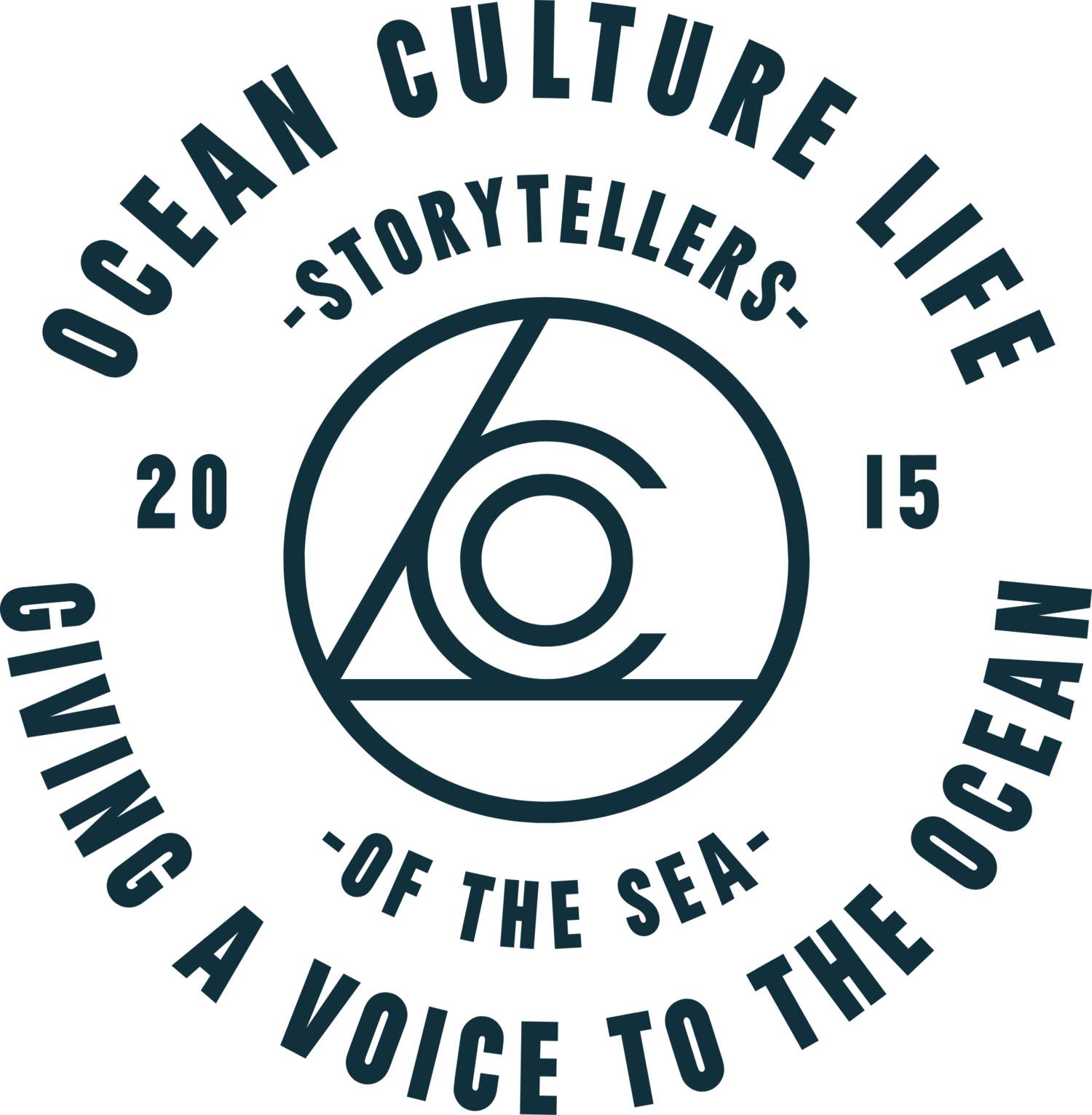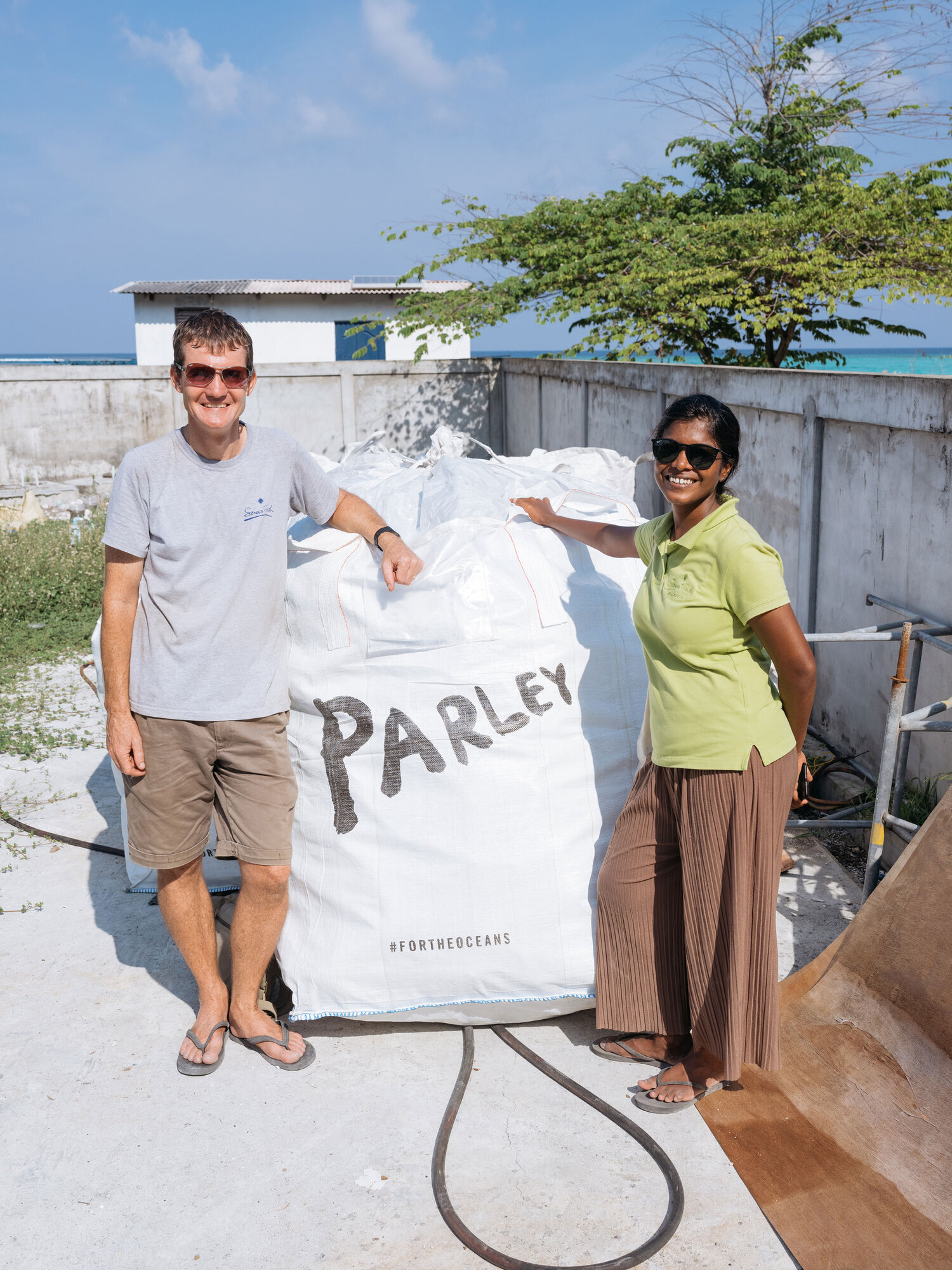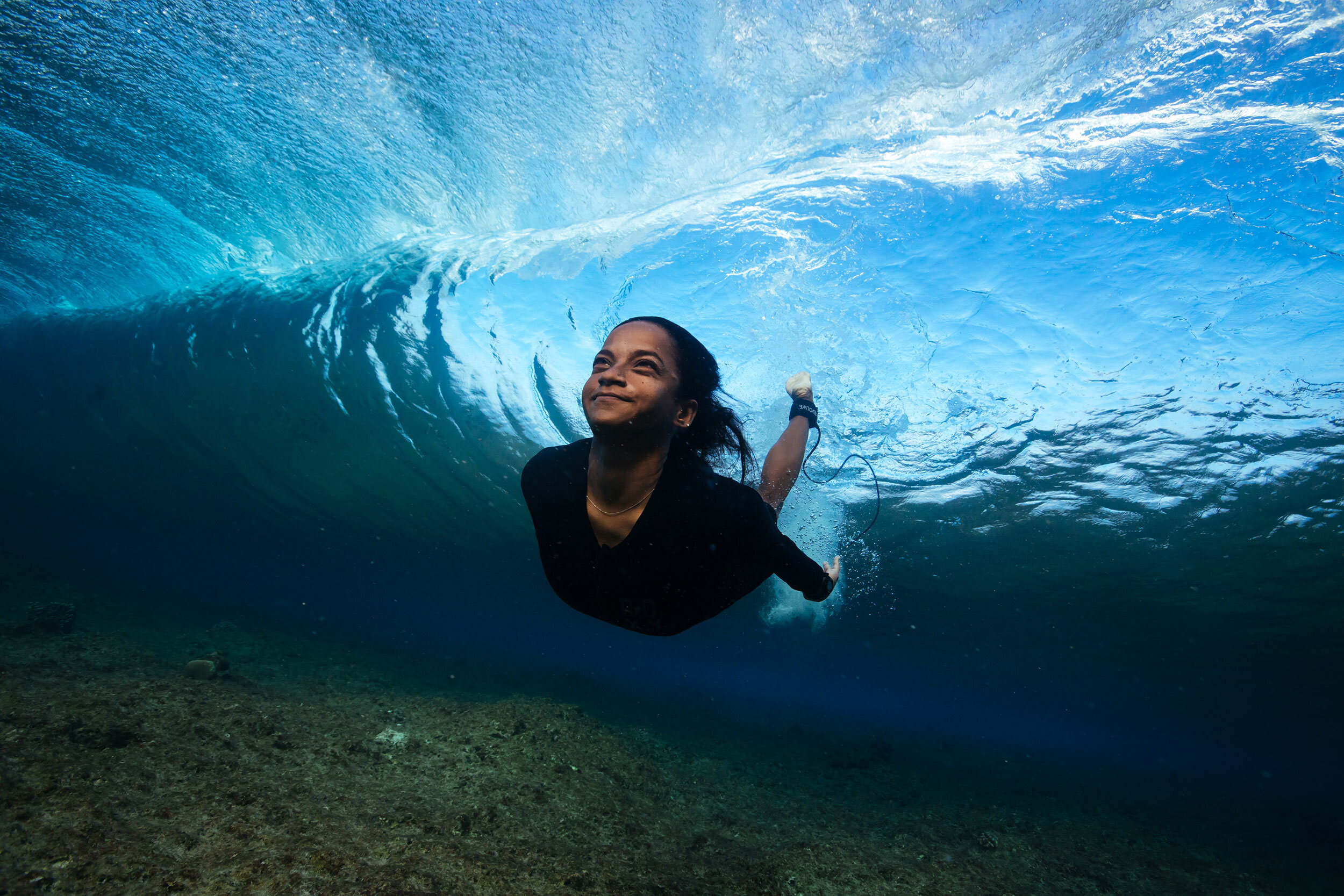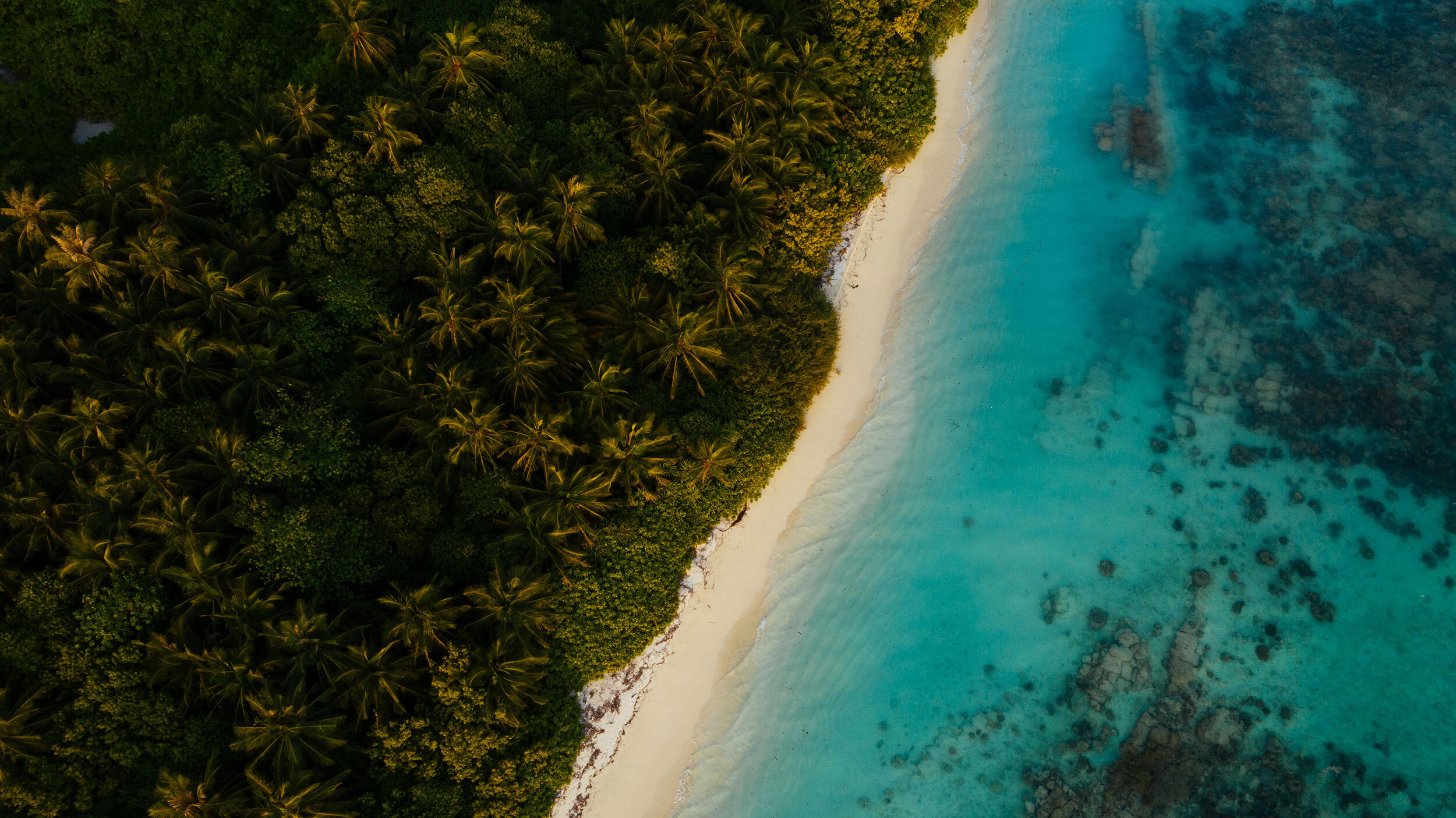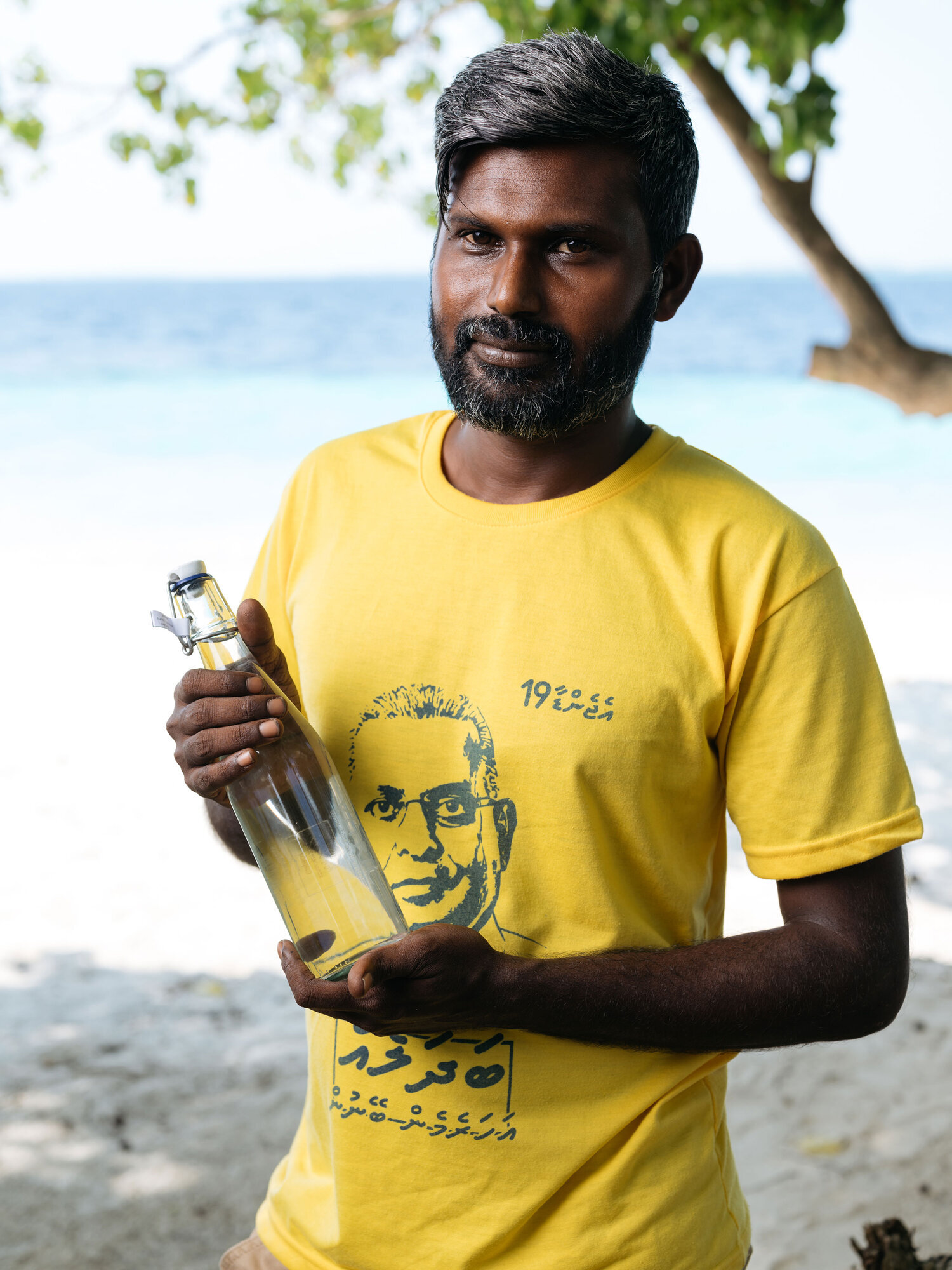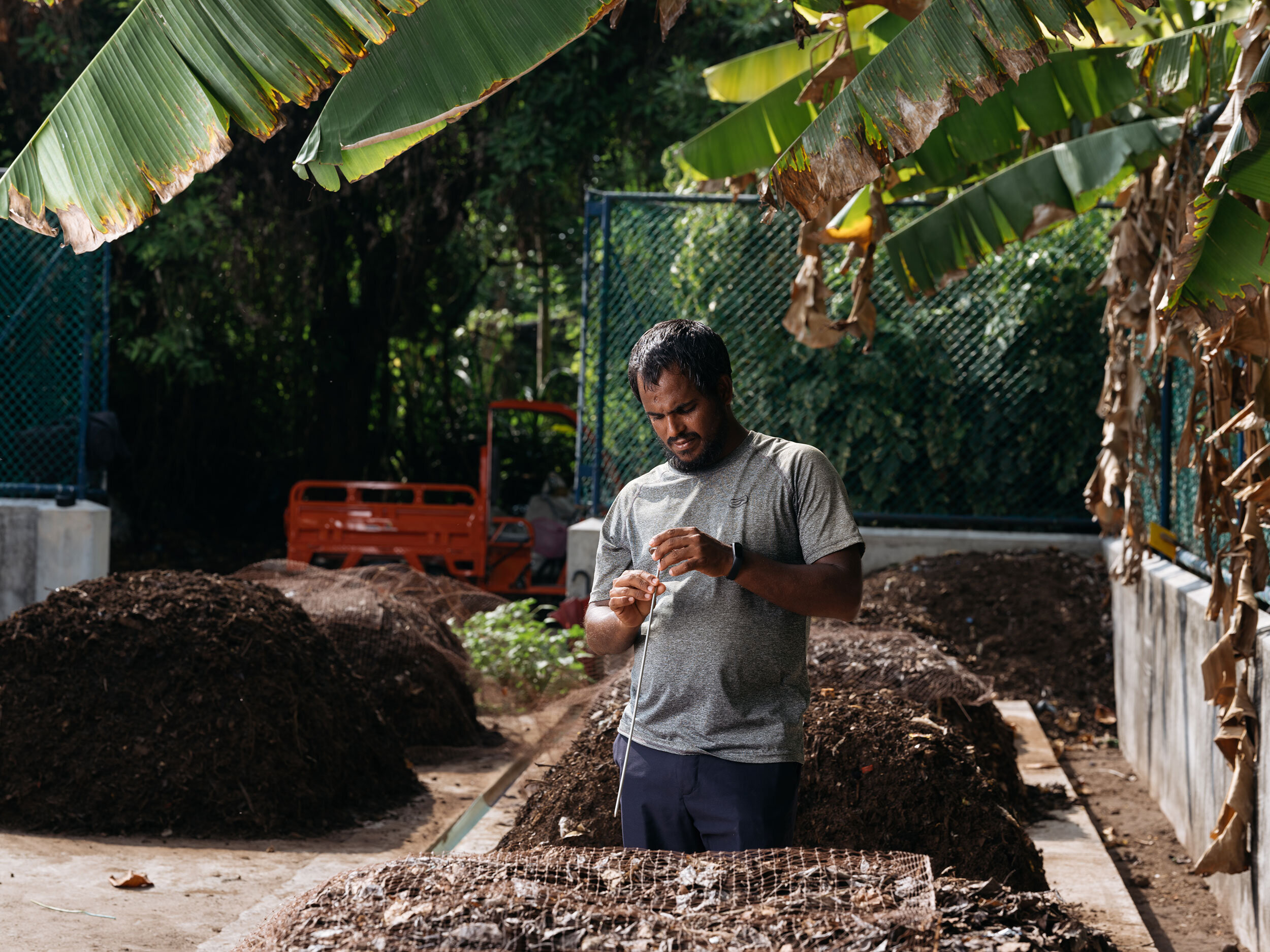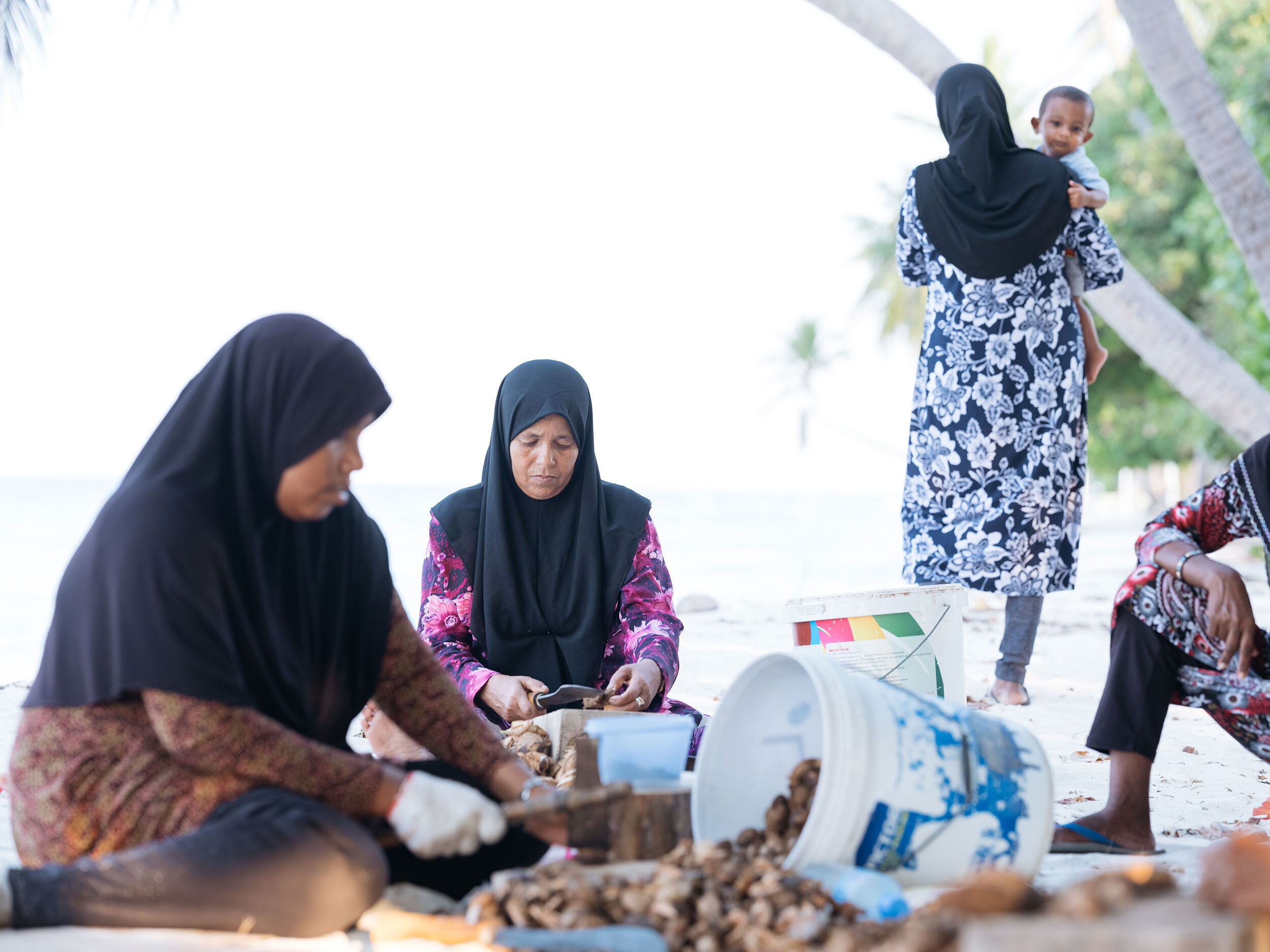Paradise Lost
Paradise Lost - Matt Sharp’s surf photography journey in the Maldives
”I wasn’t sure what to expect from the Maldives. It was a last-minute decision to join the trip, and hadn’t really done much research apart from articles I’d read over the years, mainly concerning tuna fishing, coral bleaching or the rising sea level.
I knew that the islands are low (about 1.4m above sea level on average) however, knowing and seeing something in real life are very different things. I was shocked to see with my own eyes just how low that is! It made me feel bizarrely vulnerable, along with the realisation that within my own lifetime, it is highly probable that a great proportion of these islands will have disappeared underwater.
Most estimates predict a sea level rise of between 0.8m and 2m before 2100, but these figures felt like an awful lot stood on the beach there! The thing I found most crazy was that everything seemed to be carrying on as if this problem didn’t exist. On our first evening we stayed in Hulhamale, which is just one of many huge land reclamation schemes for massive housing projects, where they are planning to build 3 metre-high walls around it to protect it from sea level rise. A huge airport terminal is due to be built to allow more people to visit, ironically bringing more emissions and driving the inevitable sea level rise more. I guess I can’t really talk, as we had flown down on these very planes… But I couldn’t help wondering, what other options do the people living there have?
We got stuck into the surfing around the North Male Atoll and I spent a lot of my time in the line up photographing below the waves, which I actually enjoy more than surfing. There was plenty of large fish, sharks, turtles etc around to keep me entertained, as well as shredding the waves. Mixed with the amazing water clarity, the Maldives is perfect for underwater photography! I honestly had some of the best fun I’ve had for years. I don’t spend as much time in the water as I used to, especially having grown up on boats and then spending large sections of my adult life working on them. I miss it so much sometimes, it was a perfect week for me in that respect - to take me back to my ocean-dwelling roots.
On the third day, the weather wasn’t so good and the wind was matching the swell direction, turning the waves to messy mush. We decided to mix it up, and after the morning surf, went to have a walk around the tiny island of Thanburudhoo. This island is home to two of the well-known local breaks on its Eastern edge: Honkeys and Sultans. We were told about how it had been sold to an American investor for yet another resort development, who did not receive permission for his side. Therefore, the island had been left undeveloped, with the exception of some old crumbling walls. We had seen quite a lot of plastic floating in the water column drifting with the tide, but once we stepped ashore I quickly realised I had underestimated the amount there would be on land. A sea of plastic bottles littered the floor, some piled a foot deep on the high water mark.
Towards the end of the week, we convinced the captain to allow us to collect up a small amount this of rubbish from the island (there was only limited space onboard). We removed several bin bags, full to maximum capacity with compressed plastic bottles, although unfortunately this only cleared a of a couple of square metres! We also found the most shocking demonstration of the amount of plastic when we found one larger hermit crab using a section of plastic tube instead of a shell. I have seen images of this before, but was pretty harrowing to witness this in the flesh; he was almost hidden from sight, wedged in-between plastic bottles.
I don’t know why I was so shocked by this on this particular trip - although it’s so easy to detach ourselves from it all when we don’t see it first hand on this scale in the UK, it’s so blatantly apparent everywhere you look in the Maldives. It feels like a bit of an imperfect storm gathering, with the islands stuck between sea level rise, coral bleaching (reefs are almost completely gone) and this plastic crisis. It’s hard not to be negative and depressed when seeing these scenes and accepting these facts, but thankfully change is underway.
In September, the President of the Maldives announced his plan to abolish all single-use plastics by 2023, with this changing mentality and awareness spreading rapidly throughout the islands. Walking around some of the local towns outside of Malé, large murals have been painted on school walls and in public spaces, with slogans and images of marine animals and plastic reduction. Speaking with local people, they are aware of the problem and what they can do to implement change for a better future.”
Namoona Baa
It can be easy to read stories like Sharpie's and remove ourselves from any responsibility of this happening. Here in Jersey, we are so lucky to have a large awareness of litter, with environmental groups such as Little Feet, Plastic Free and OCL encouraging islanders to help protect our shorelines.
Matt Porteous visited the Maldives back in May, and was invited to document the Soneva resort and the change they are making in the northern atolls. They are the first resort to implement a ‘waste-to-wealth’ model as part of the Namoona Project - this based on a pledge to stop all open-burning of waste in three islands, and took the first step in making huge change in the Maldives. The islands Maalhos, Dharavandhoo and Kihaadhoo all made this promise at a waste workshop held at Soneva Fushi, in which all waste from the resort (for example food, metal, bottles) is chipped, ground or composted and turned into items of value, for example building blocks or fertiliser. This fertiliser is then used in their own gardens, where they grow a huge variety of food to use in their restaurants.
Soneva has also spread their project to the waves, through their Surf programme - the world’s first fully sustainable surfing programme, with every single item in use being made from reef-friendly, recycled or reused materials. They encourage local residents to guide their guests to some of the best breaks around their resort, always with the health of the ocean and protecting marine life in mind. To get more young people involved, they aim to work with partners to source more equipment, opportunities and teaching for aspiring Maldivian surfers, including organising local surfing events in the future.
OCL will be returning to the Maldives in January 2020, and can’t wait to see how much the islands and residents’ mentality has changed in a such a short space of time. Although this group of beautiful islands shows what a huge problem plastic pollution can grow to be, the country’s initiatives and short-term aims are inspirational to us all around the world. They have demonstrated how much change can be made quickly, if goals are managed and everyone works together to accomplish them.
